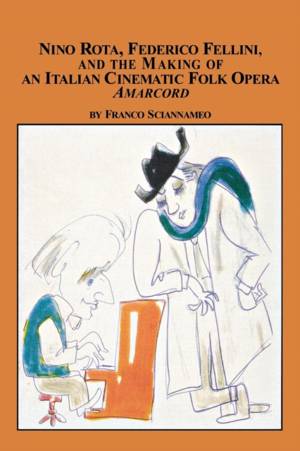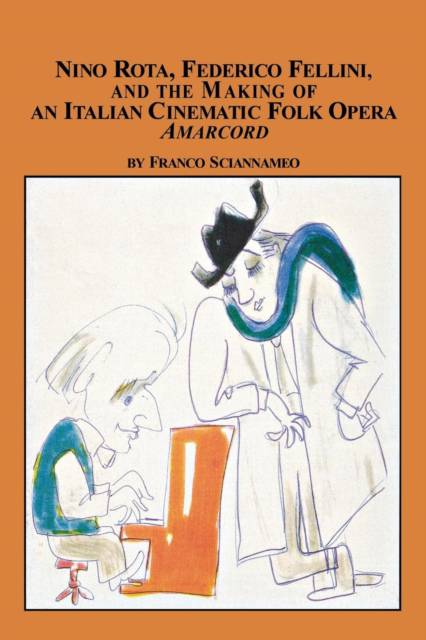
- Afhalen na 1 uur in een winkel met voorraad
- Gratis thuislevering in België vanaf € 30
- Ruim aanbod met 7 miljoen producten
- Afhalen na 1 uur in een winkel met voorraad
- Gratis thuislevering in België vanaf € 30
- Ruim aanbod met 7 miljoen producten
Zoeken
Nino Rota, Federico Fellini, and the Making of an Italian Cinematic Folk Opera Amarcord
Franco Sciannameo
Paperback | Engels
€ 64,45
+ 128 punten
Omschrijving
Federico Fellini entered the pantheon of 20th-Century artists for his path-breaking films like, La dolce vita (1960) and Otto e mezzo (1963). However, it was with Amarcord (1973), that Fellini achieved universal fame. That celebration of youth and memory transcends all barriers of ethnic origin and national belonging by simply appealing to human commonalities. Similarly, Nino Rota's music, an integral part of this film, eludes cultural boundaries by blending learned and popular musical styles - as in a folk-opera in which stories or episodes are expressed through song and dance representative of everyday life. By juxtaposing music and images, their own creative personae and their youth as it relates to our collective memories, Fellini and Rota made this film about "remembering youth" an unforgettable experience for generations of viewers and listeners. This monograph is of interest to scholars of music, cinema, and cultural studies.
Specificaties
Betrokkenen
- Auteur(s):
- Uitgeverij:
Inhoud
- Aantal bladzijden:
- 114
- Taal:
- Engels
Eigenschappen
- Productcode (EAN):
- 9780773408081
- Verschijningsdatum:
- 1/01/2005
- Uitvoering:
- Paperback
- Formaat:
- Trade paperback (VS)
- Afmetingen:
- 152 mm x 229 mm
- Gewicht:
- 176 g

Alleen bij Standaard Boekhandel
+ 128 punten op je klantenkaart van Standaard Boekhandel
Beoordelingen
We publiceren alleen reviews die voldoen aan de voorwaarden voor reviews. Bekijk onze voorwaarden voor reviews.











